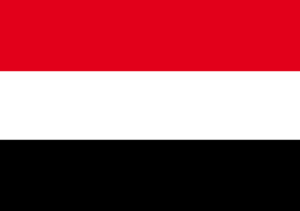by The Cowl Editor on December 7, 2017
Editorials

by Lela Biggus ’18
Opinion Staff
There is a war going on in Yemen and it has barely received any media coverage, especially here in the United States. By not sufficiently or accurately covering the conflict, American media is doing a disservice to its own people and an injustice to Yemeni civilians caught in the crosshairs of this civil war turned humanitarian crisis.
The current conflict in Yemen is complex in its origins and its perpetuation, but the situation on the ground today looks something like this: Houthis—Iran-backed Shia rebels from the north of the country—fighting a Saudi-led multi-country coalition for control of the capital Sana’a, al Qaeda and ISIL militants carrying out attacks, the world’s worst cholera outbreak, and millions of Yemenis displaced, malnourished, or dead.
Children are the most vulnerable group bearing the brunt of the crisis. Two million children in Yemen today are severely malnourished. Millions more face imminent famine without sufficient aid for lack of both physical access and international humanitarian response. The United Nations World Food Program reports that $335 million is still needed to combat food insecurity and famine for nine million Yemenis into 2018.
60 Minutes aired a 13-minute segment on the crisis in Yemen in late November. Scott Pelley introduced the segment, noting that footage and news from Yemen is difficult to obtain because “the Saudis prevent reporters from reaching the warzone.” This is true. Saudi Arabia imposed a naval and air blockade effectively restricting access for humanitarian groups and the media after a Nov. 4 Houthi ballistic missile attack on Saudi Arabia’s capital, Riyadh.
Pelley then warns viewers that scenes to follow are those that “the Saudi government does not want you to see.” This is not the whole truth.
More than likely, what 60 Minutes and much of the media we consume in the United States does not want us to see is that the crimes and human rights abuses carried out knowingly by the Saudi coalition are backed and funded by the U.S. government.
Lackluster media coverage on Yemen is less reflective of the blockade and the interests of the Saudi government and more about the U.S. keeping its skeletons securely in the closet.
Saudi Arabia has long been a key regional ally of the United States, not to mention a major oil and arms trade partner, and the U.S. has supported the Saudi intervention in Yemen for over two years with a steady supply of fuel, intelligence, and bombs.
Dr. Ruth Ben-Artzi of the political science department points out two major issues with U.S. involvement in Yemen, stating, “While the Saudis are U.S. allies, being involved in this violent conflict is not in U.S. foreign policy and national security interests.”
She commented, “Inserting itself into a conflict between Saudi Arabia and Iran, the U.S. is further complicating its relationship with Teheran at a time where finessing diplomatic efforts and upholding the P5+1 Iran Nuclear Deal would be in America’s best interest.”
The future of U.S. engagement in Yemen’s bloody conflict is uncertain, but one thing remains clear: the media is not painting viewers an accurate picture of the situation. As a result, international outcry and subsequent aid to Yemen remains weak.
We, the international community, should become as educated and as enraged about the children starving in Yemen as we are about the war in Syria. If we allow ourselves to remain in the dark about who is responsible for the humanitarian crisis in Yemen, then we cannot collectively call out those who are to blame. The conflict is complicated, but there are clear actors ignoring, and therefore perpetuating, human rights abuses that should make us all shudder.
If you would like to give to the humanitarian effort in Yemen, the UNWFP is a good place to start. You can find out more about the program’s impact and how to give at: http://www1.wfp.org/emergencies/yemen-emergency.